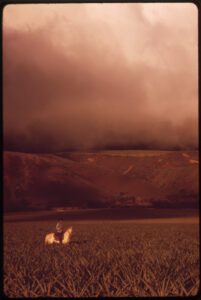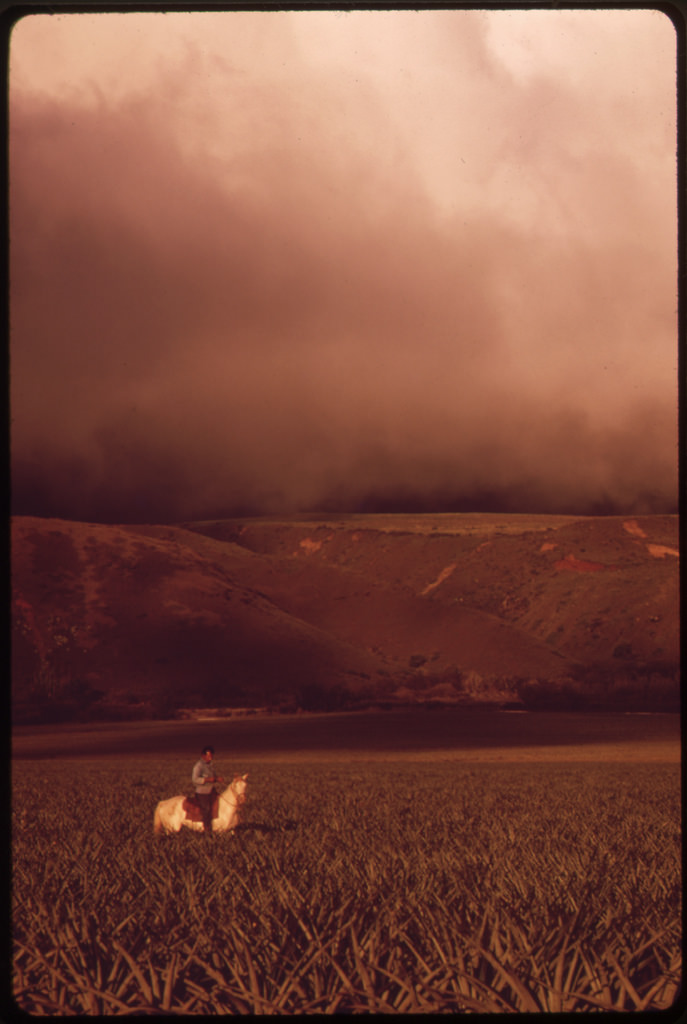

Steve Heller, chair of the MFA in Creative Writing Program, and Don Strauss, founding chair of the Urban Sustainability Masters Program, presented together at the Hawai`i International Conference on the Arts & Humanities on the island of Waikiki, January 10-12, 2019.
This was the second time they’ve given the presentation, which is titled “What We Write About When We Write About Sustainability.” The first was at the 2018 AWP Conference in Tampa, Florida, which was a large affair, with around nine-thousand attendees. The recent Hawai`i conference was much more intimate, approximately two-hundred attendees, which allowed for some interesting dynamics in terms of a pre-presentation conversation between presenters and the resulting evolution of the larger conversation. “We were all [the presenters] speaking at lunch on the first day,” said Strauss, “and it very quickly became clear that everyone was more interested in throwing out their notes and picking up where that conversation left off than delivering their prepared presentation content!”
The Hawai`i conference as a whole became a discussion about how to engage landscapes and populations in various ways pointed towards justice. They talked about storytelling as education on environmental issues, landscape disturbances, and the effects of these on marginalized populations. Heller talked about the Hawaiian Island of Lana`i, which he is writing a novel about, and on which his first published short story was based. Strauss talked about California and water issues. In a subsequent talk, Dr. Tom Hutton, a professor of geography from University of British Columbia Vancouver, talked about his research on sustainable urban neighborhoods in the western United States and Canada, which created a throughline of information between all of the presentations. Strauss and Heller, in retrospect, view the experience as a metaphor for what goes on as a whole in ecosystems in terms of interconnectedness and domino effects across spaces. “Sharing of information across the planet between disciplines is how we know about climate change in the first place,” said Strauss. “But it can be overwhelming. We are trying to find ways to approach these issues on a manageable scale, from a place where it feels like something can be done.”
 “There is also an aesthetic dimension to these issues,” said Heller. “The romanticization of the landscape is, in many ways, a construct of certain types of nature writing. I always thought human-made things were ‘ugly.’ Don’s work has helped me to see the ways that Los Angeles and other urban and developed places are beautiful. It was very professionally satisfying to see people’s connections to issues across landscapes and populations.”
“There is also an aesthetic dimension to these issues,” said Heller. “The romanticization of the landscape is, in many ways, a construct of certain types of nature writing. I always thought human-made things were ‘ugly.’ Don’s work has helped me to see the ways that Los Angeles and other urban and developed places are beautiful. It was very professionally satisfying to see people’s connections to issues across landscapes and populations.”
Heller opened their presentation by telling a story about the Hawaiian island of Lana`i and its evolution from an “island inhabited by ghosts,” to a Dole pineapple plantation, to its current incarnation as a holiday resort destination for the very wealthy. “Steve grounded the conversation by plugging into the narrative of a place, a very local and specific place,” said Strauss. “From there you can talk about any place.”
“I’ve been writing about issues of sustainability for my whole career,” said Heller. “I just didn’t recognize it as such until fairly recently.” The Dual Urban Sustainability MA and MFA Creative Writing Program encourages storytelling as education on issues of sustainability and social justice. An example is a student who writes about her experiences growing up in the “cancer alley” region of the lower Mississippi.
“Essentially, the takeaway of the presentation and the potential for this type of learning and education is for people to recognize the opportunity to look at something differently, specifically the artificial aspects of the urban landscape, and see the potential for creative regeneration,” said Strauss. “It’s about Place and Narrative and how we sustain ourselves. Coming out of our programs, we see an informed creative storyteller who is also an advocate and a practitioner.”
 Photos: Steve Heller; Don Strauss; “With pineapple fields as his arena, Henri Aki takes his horse for a late afternoon training session near Lanai City. Pineapple growing takes up 16,000 acres of the island’s territory, October 1973″ (original caption); Four Seasons Resort, Lana’i
Photos: Steve Heller; Don Strauss; “With pineapple fields as his arena, Henri Aki takes his horse for a late afternoon training session near Lanai City. Pineapple growing takes up 16,000 acres of the island’s territory, October 1973″ (original caption); Four Seasons Resort, Lana’i


